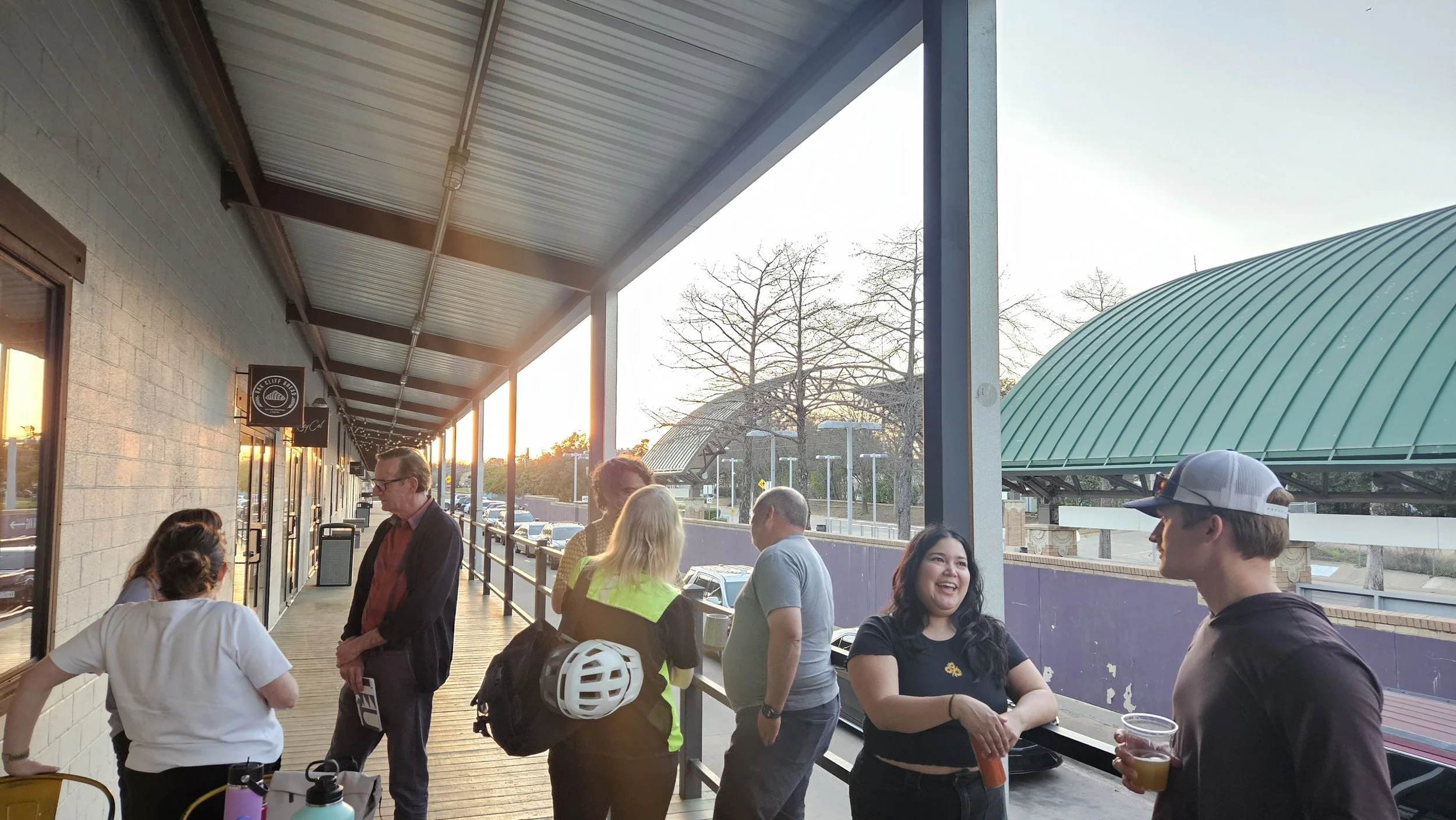What I've Learned From Four Years as a Local Champion for the 12 Steps of Town Making
I didn't set out to be a leader. We started the Dallas 12 Steps of Town Making group in October 2021 as the world was coming out of our COVID quarantine. Monte Anderson approached Rik Adamski and me as we were relaunching our Neighborhood-Oriented Developer Happy Hours in Dallas. Monte asked me to help coordinate a group that would pair with those gatherings, and just like that, I became a "local champion".
Being a local champion isn’t about being in charge; it’s about showing up. It’s about making sure the meeting happens, that there’s a seat for everyone, and that when someone walks in late, they’re welcomed with a smile and pulled into the conversation without judgment.
Over the past four years, I’ve learned a lot—not just about real estate or neighborhood development, but about people, leadership, and the messy, beautiful work of building community. Along the way, I’ve come to see five key lessons that continue to shape how I think about this group and my own work.
Dallas 12 Step in Town Making - Meeting
Lesson 1: Show up, even when you're tired.
There are weeks when I’m worn out. Dealing with tenants, subs, the city—being a small business owner in this space can feel like you’re doing it all on your own. But I still go to the meetings, and I always leave feeling better. There’s something about the energy in the room—people who are trying, learning, sharing mistakes, and encouraging each other. Sometimes I even learn the most when I’m trying to explain a concept to someone brand new. It reminds me that I do know things and have come a long way, but I’m still learning too.
Lesson 2: Consistency beats perfection.
We’ve been meeting every second and fourth Tuesday for almost four years. Sometimes five people show up, sometimes twenty. Sometimes half the group trickles in late, but we never cancel. There have been nights when it’s just me and a couple of others having an informal chat, and then ten more people show up 15 minutes in. If we’d canceled, they might never have come back. Consistency builds trust. It tells people we’re here whether it’s five of us or fifteen, and that they’re welcome anytime.
Lesson 3: The second project is harder than the first—and we’re here for that.
The first deal you can sometimes pull off with your own money. The second one? That’s when you need investors, partners, or maybe even a loan officer who believes in what you’re doing. That’s part of why we changed our meeting format. Instead of doing just step-by-step discussions, we now use one meeting for the step of the month and the second for something deeper. This could be a guest speaker, a topic deep dive (like pro formas), or a “deal night” where someone presents a real project they’re working on. This change has brought a new energy and a deeper level of engagement. You can talk about how to structure a pitch, or you can actually pitch your deal to a room of people who want to see you succeed. That’s real learning; that’s real growth.
Lesson 4: It’s not about you—it’s about the community.
One of my favorite moments came when I was out of town and a regular stepped up to make sure the meeting went smoothly. I asked how it went, and they joked: “Meeting went smooth. Somehow we did it without ya, Pete”. That’s not an insult—it’s a triumph. It means we’ve built something that isn't about any one person. It’s about people showing up for each other. When we first started, I’d prep volunteer facilitators with names and experience levels so they could call on people. Now, regular attendees jump in organically. We also make space at the end of every meeting for the quieter folks, an intentional pause for them to ask questions or share reflections. The group doesn’t need me to function, and that’s how you know it’s working.
Dallas 12 Step in Town Making Group - Happy Hour
Lesson 5: Let the group grow its own roots.
People love to bring ideas to the group, like “We should make a service directory!” or “Can we start a private forum?”. My answer is always, “Go for it—I’m not stopping you, but I can’t run it myself”. That approach has worked. A member eventually built a referral database, and now it’s linked in our reminder emails. I didn’t create it, but I made space for it to exist. That’s leadership: not doing everything yourself, but giving people permission to lead. I try to be selectively controlling—be firm about time, place, and tone, but let the community shape the rest.
So what's next?
Honestly, I’d love for this to become a place where socially conscious investors and lenders know they can find people doing the right kind of work. I’d love for our members to keep influencing how their neighborhoods grow, because that’s already happening. But more than anything, I want new people who walk into a meeting to feel one thing: inspired. Inspired to believe, they can be a town maker too. That they don’t have to be perfect. That they just have to take a step, and then another. That’s what we’re doing here, and I hope you’ll do it where you are too.




